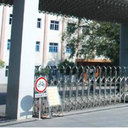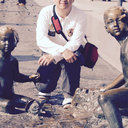Meta-analysis of traditional Chinese patent medicine for ischemic stroke.
Ключевые слова
абстрактный
OBJECTIVE
A large number of traditional Chinese patent medicine (TCPM) are widely used for ischemic stroke in China. The aim of this study was to systematically review the existing clinical evidence on TCPM for ischemic stroke.
METHODS
We identified all TCPM that were listed in the Chinese National Essential Drug list of 2004 and those commonly used TCPM in current clinical practice for ischemic stroke. Fifty-nine TCPM were identified for further evaluation. We applied Cochrane systematic review methods. We searched for reports of randomized controlled trials and controlled clinical trials on any of the 59 TCPM for ischemic stroke comparing one TCPM with control. PRIMARY OUTCOMES included death or dependency at the end of follow-up (at least 3 months) and adverse events. Effects on neurological impairments were a secondary outcome.
RESULTS
One-hundred ninety-one trials (19,338 patients) on 22 TCPM were available and included, of which 120 were definite or possible randomized controlled trials and 71 were controlled clinical trials. The methodological quality of included trials was generally "poor." Few trials reported methods of randomization. Three trials were randomized, double blind, and placebo-controlled.
METHODS
one trial on Puerarin and one trial on Shenmai injection assessed death or dependency at the end of long-term follow-up (at least 3 months) and found no statistically significant difference between 2 groups. The reported adverse events including allergic reaction, headache, nausea, diarrhea, bellyache, blood pressure change, and subcutaneous ecchymosis. Most of the adverse events were not severe.
RESULTS
analysis of the secondary outcome, "marked improvement in neurological deficit," showed apparent benefits of about the same magnitude for all the TCPM studied. Of the 22 TCPM, 8 drugs (Milk vetch, Mailuoning, Ginkgo biloba, Ligustrazine, Danshen agents, Xuesetong, Puerarin, and Acanthopanax) had relatively more studies and patient numbers.
CONCLUSIONS
There was insufficient good quality evidence on the effects of TCPM in ischemic stroke on the primary outcome (death or dependency). We considered the apparent benefit on neurological impairment was as likely to be attributable to bias from poor methodology as to a real treatment effect. However, because the agents assessed appeared potentially beneficial and nontoxic, further randomized controlled trials are justified. Eight drugs could be further research priorities.






